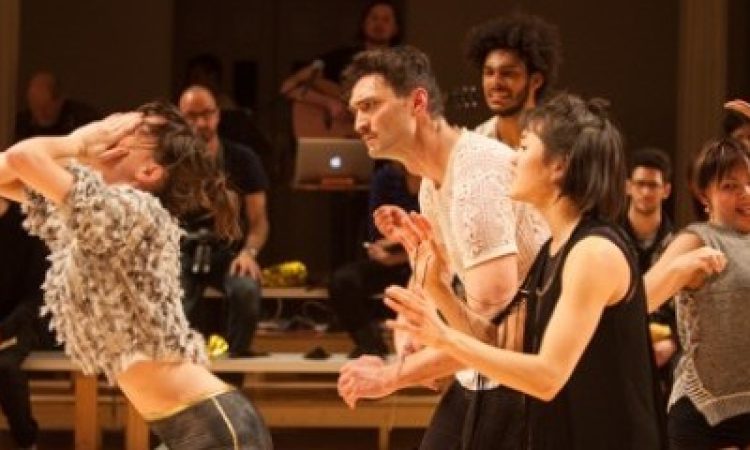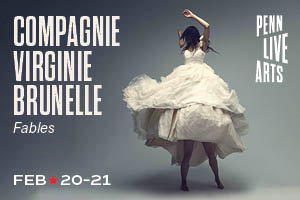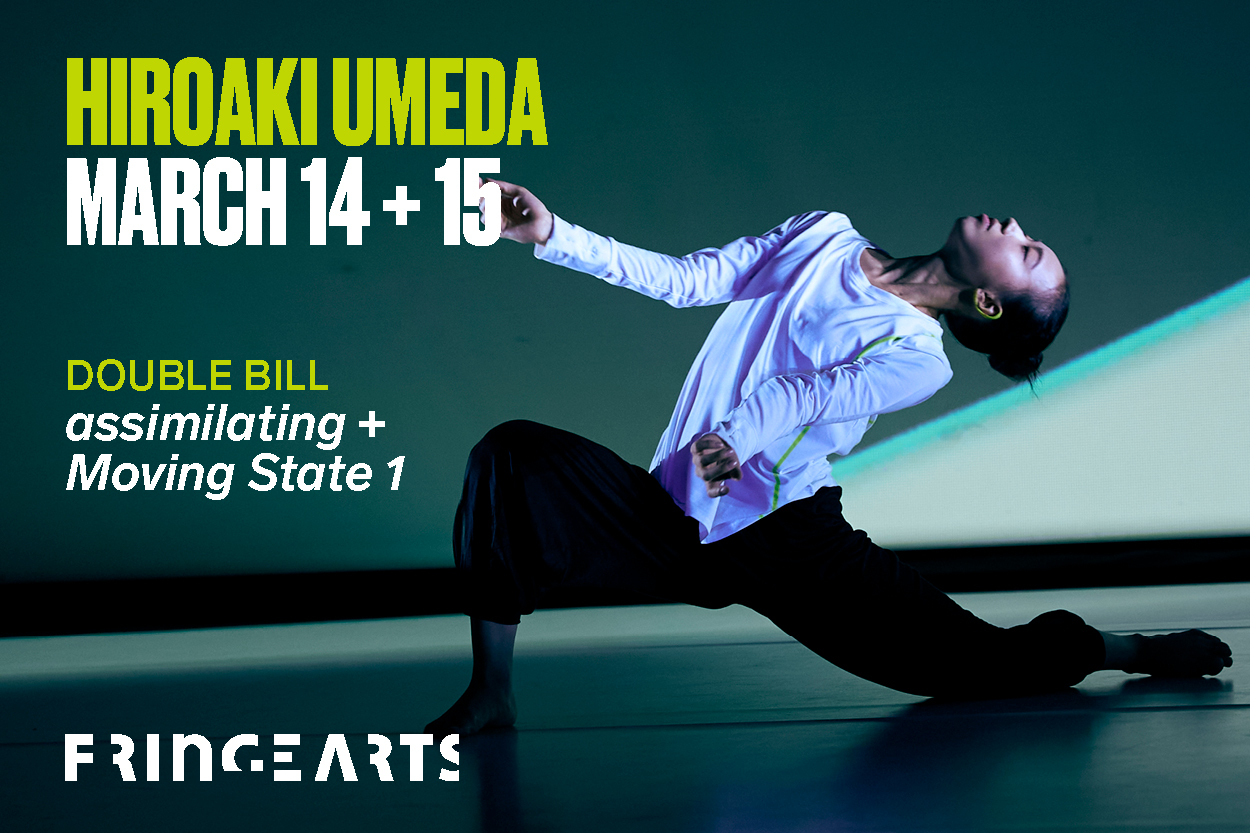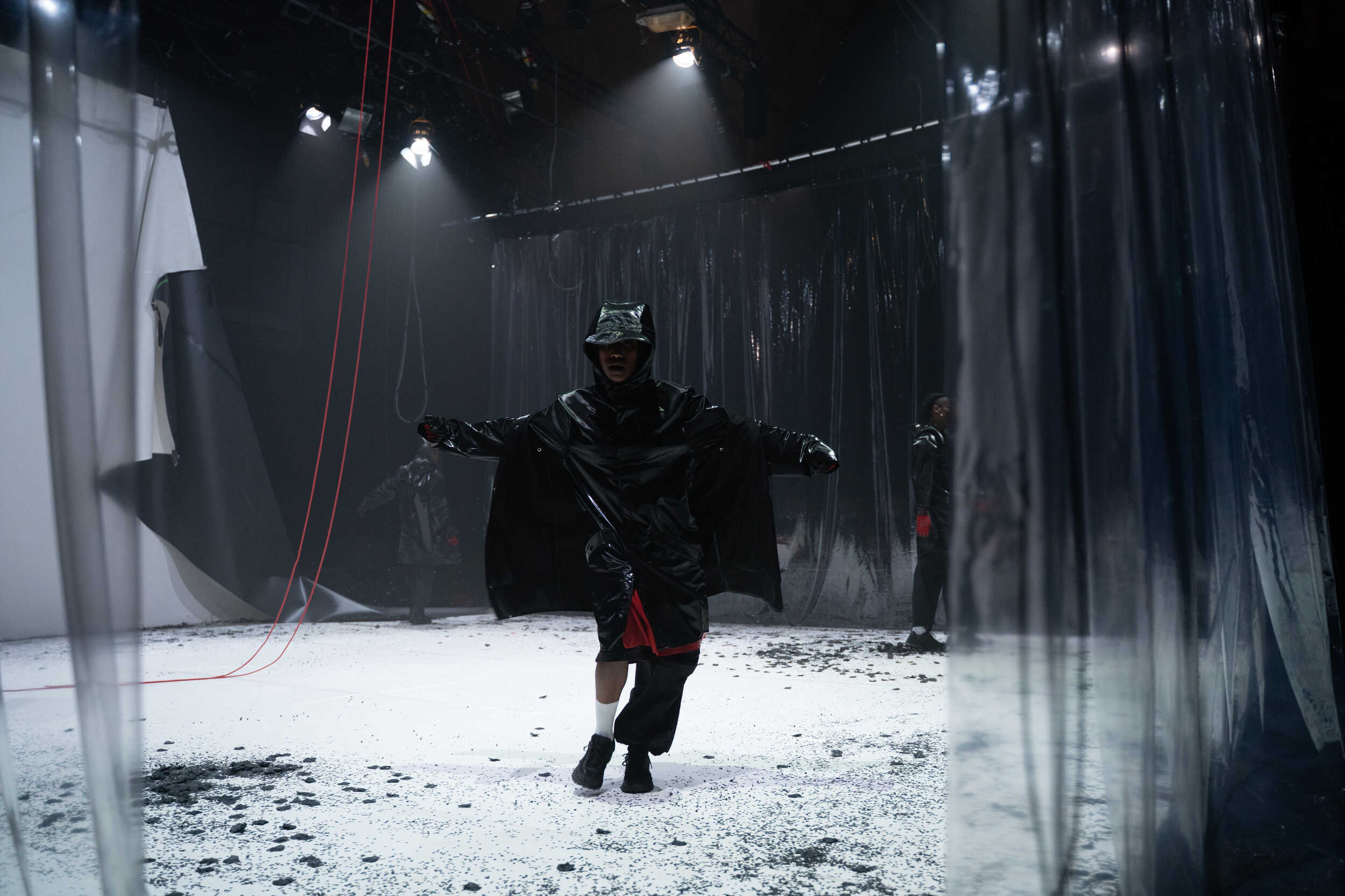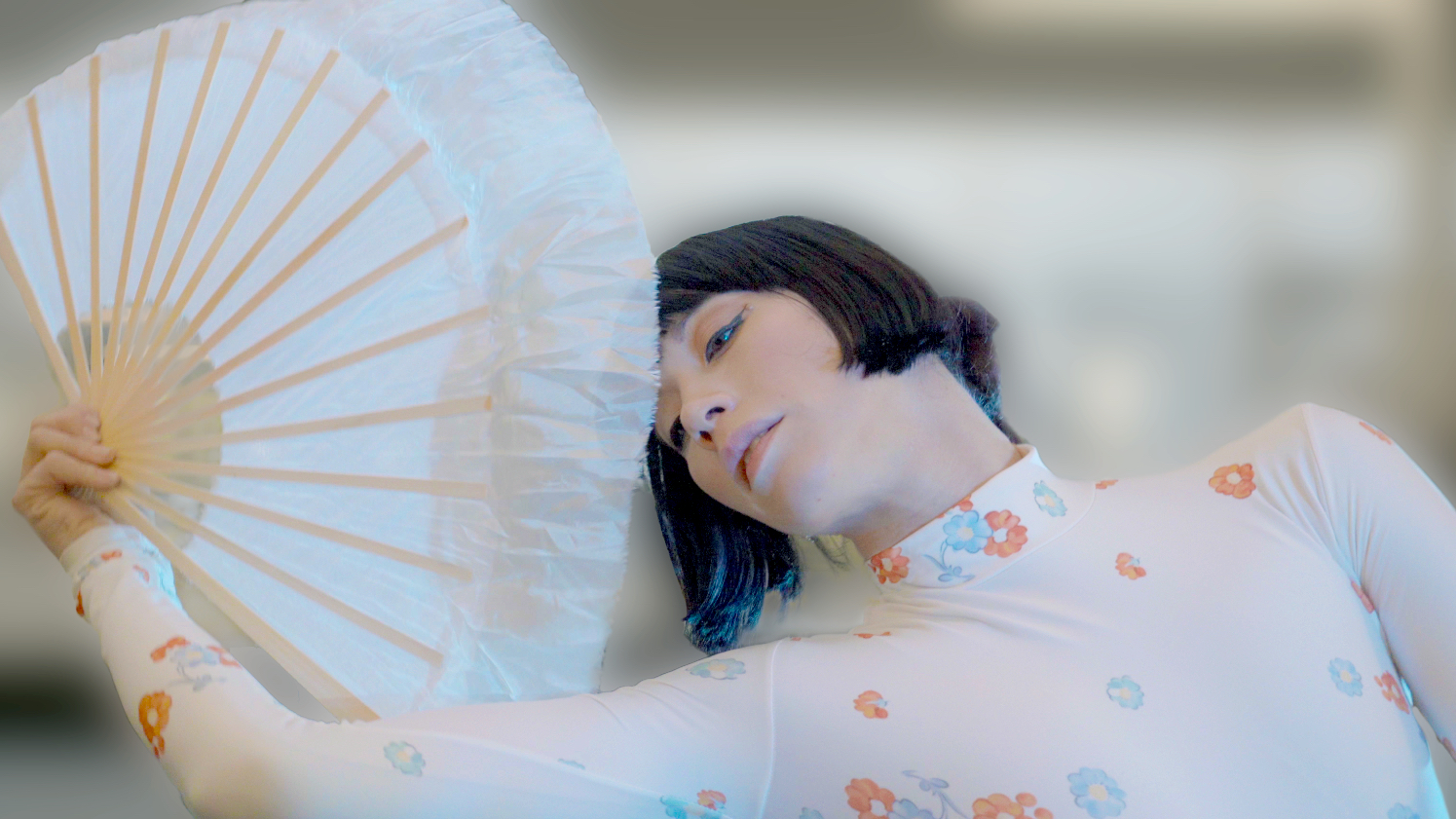Ellen Chenoweth and Lisa Kraus were in New York City during this year’s Association of Arts Presenters Conference (APAP) and the constellation of performances and activities that surrounds it. Presenters from around the country attend, but there is also a large presence of artists, not just showing their own work, but taking advantage of the concentration of performances to see what their peers are up to. Each wrote separately and then they shared a google chat, shown in italics.
Ellen Chenoweth:
APAP is weird. Although the ratio of love to hate may fluctuate, there is a robust consensus among participants that the conglomeration of performances that happens in New York in early January is an unnatural occurrence.
APAP is an emotional and spiritual marathon, combined with elements of a high school reunion, and a fiendishly difficult logistical puzzle to top it all off. I saw the work of 19 choreographers (or collaborative teams) over five days, not including snippets presented at CATCH or at other showcases.
This is not normal. This will mess you up and leave you dazed. This will make you feel incredibly lucky and slightly drunk and like you’re coming down with a bad cold. It will cause you to wonder strange things, like: would you be capable of carrying Sean Donovan out of Danspace during Faye Driscoll’s performance if needed because he’s making eye contact and giving you a pleading look from the stage platform a few inches away. (Decision: it’d be difficult since you’re not wearing shoes, but you would give it a go.)
You notice that the weather report predicts something called “bitter blue” for the next day, and you wonder if poets have taken over meteorological forecasts in NYC taxicabs.
LK: Hi Ellen, How are you doing now several days later?
EC: I feel recovered and relaxed, and grateful for this bizarre but interesting thing that we do. And I do find that it nurtures me, gives me a lot to chew on. How about you? How are you doing this week?
LK: I guess it’s a catalyst for whatever is coming up generally for me. As you can see, I was in a contemplative mood about the whole thing, but that’s probably more about me than about it.
EC: It is! Kind of like a Rorschach test.
Lisa Kraus:
I left APAP this year with a sense of disappointment. Not that the work on view was any less interesting or deeply invested in than in other years. But because of where I sit, and our times, I wonder more and more how the largely experimental art I was watching fits into the wider scheme of things.
This isn’t a new quandary for me. Perhaps I feel it more deeply now that the career arcs of elders who have defined my dance universe are complete—Trisha Brown, no longer able to choreograph; Elaine Summers, recently passed away; Merce Cunningham, company dissolved now; Remy Charlip, gone too; and others certainly in the final years of their creative lives. What does all this current activity mean? Does it matter? Will it have any lasting impact?
Or is the ongoing current of activity as ever—just what humans do, with some rising to a level of excellence and wider recognition, and most not?
LK: The ephemerality of our whole endeavor was my big subtext.
EC: I’ve been thinking about that a lot too.
LK: It’s kind of weird though that I was so focused on that because many of the people I encountered I’ve had relationships with for thirty years, some more some less, but many folks from my “tribe” so it’s quite strengthening in that way… Maybe I am asking about the health and welfare of the tribe…
EC: I saw Annie Wilson right after I came back and she was talking about having periodic crises of faith in performance, which I could relate to. Does that feel like what you’re experiencing?
LK: Gee, on a personal level that comes and goes…I think it will forever. APAP is like a declaration against doubt!! It all goes on and on, the whole circus!!!
Ellen Chenoweth:
You hear a choreographer explain that her work is based on abstraction and wonder what that means. Doesn’t it need to be an abstraction of something? Might as well say your work is based on wispy willows of whim, right?
You see the same people over and over again at different shows. Even if you don’t know them, you know you probably want something from them. We all want something from each other. We want something to talk about. We want something to move us. If you’re a presenter, you want something to take back that will sell tickets. If you’re an artist, you want a phone call or an email, expressing interest in buying something that absorbed years of our lives. We ponder the point of it all. Am I overstepping my bounds, or am I under-stepping my bounds? Where have I seen that performer before? What’s next? Was that…? Where was…? Oh, yes. Am I? Are you? Share a cab? Get a drink? Let’s go.
If you see a bunch of mind-bending, spiritually-sustenance-providing performances, it’s jarring to have your earth repeatedly shattered. But then we’re disappointed if nothing shatters, if everything remains the same. The thing we desire is the thing we’re afraid of.
LK: I do feel as if I get to touch in at a place where the heartbeat is really strong and I can get some whiffs of fresh scents.
EC: I love that image of the strong heartbeat.
LK: Yes. And to me this year, every piece, no matter how beautiful, was like water running through my fingers.
EC: So interesting… And I have to say that that longevity you’re describing is definitely one of my goals. I’ve only been in the field for about 10 years now, and I already feel part of such a complicated, beautiful web of people and institutions and places, and I love how those evolve over time—so I aspire to that longevity that you talk about.
LK: It’s actually a wondrous feeling to have history like that. And you find that the circles come full circle from time to time. I worked with John Jasperse first in 1986, and now he is making work that just delights me to no end. I saw Cunningham as a child, and now Rashaun Mitchell (a former Cunningham dancer) is creating a new dance baby somewhere between Merce’s work and Trisha’s—a hybrid I’ve not seen before and it also sends shivers up my spine. So cool.
EC: Yes!
Lisa Kraus:
Here are some of my notes from a few of the performances and works-in-progress showings I saw at New York Live Arts’ Real Artery, Under the Radar, Danspace Project, American Realness —
“strange relationships—not ordinary but connecting…melting, tipping, wobbly…moments of the image peeling away or descending suddenly” (Rashaun Mitchell)
“the drone of the soundscore, the spacious goldenness of the set, the slowness of the action itself with doubled actions, stopped floor shapes, all were like a dream of the earlier Trisha work…I kept drifting off, nodding out and hoping I hadn’t made any embarrassing noises” (Beth Gill—the slow pace of her response to Brown’s Newark—hard for my jazzed-up system to handle)
“shifts from abuse to kindness, sensuality to play” (Cynthia Oliver)
“brilliance of DFW’s confessional…regarding the ordinary with an extraordinary mind… perplexing inability of the actors to keep up” (Daniel Fish whose theater piece drew on texts by David Foster Wallace)
“I know they are in Africa… it is a ritual kind of song… shadows defined and fuzzy like a Balinese shadow play” (Okwui Okpokwasili)
EC: If there’s one performance you think you’ll remember next year from this year, what do you think it’ll be?
LK: Seeing Okwui’s lips pressed up against the shadow play plastic was pretty indelible.
EC: Agreed, I’m still hearing that song Okwui used too.
LK: Yeah Okwui’s singing women. WOW.
Lisa Kraus:
I listened to a panel of speakers whose work centers on the performing arts in relation to climate change/social activism. A question came up that kind of stopped everyone in their tracks. It was about the power of the arts to actually effect transformation, to do something about a situation rather than just bringing awareness to, bearing witness to or commenting on. Everyone said, “Yes, that is the big question.”
Back at Bryn Mawr College, I mentioned this conversation to my colleague Mady Cantor, who talked about how her brother had labored for three years in New York State for a minimum wage increase, a slog that was ultimately successful. She said that by comparison, what the arts can do in terms of effecting actual change is quite limited.
Dance is like writing on water.
EC: A couple of experiences kind of rattled me up recently. One was our Dancing for Justice protest, and the night before I saw Jumatatu Poe and Jesse Zaritt perform at AUX, and it just felt like those acts changed things in the world. We can’t see their effects, we can’t measure them, but the earth is different, the air is different. I don’t know how else to describe it…..
LK: What about Juma and Jesse’s performance?
EC: They had a kind of energy… they unleashed an energy that was so powerful and intense. There’s no way that that energy didn’t shake things up in the cosmos around 11th Street, you know?
LK: Hmmm. It’s a bigger vision maybe, feeling connected on the performers’ parts to something much vaster.
EC: So I guess I would argue, in relation to your great question around climate change (what are we actually doing about the situation) that we have to do it all—we have to make performances that affect the cosmos, and we have to recycle, and we have to vote and lobby and protest, etc….
LK: Right… that the art making part CAN only accomplish so much and that other acts are needed.
EC: Yes, I would agree with that.
LK: And then what about the fact that all this activity happens and then disappears? Is that any different than us being mortal, having lives and then dying leaving little trace? I mean, the activity of my daily life is not leaving some indelible important imprint…so why must dance?
EC: Great question! And it’s true, we’re all going the same place, so the getting there is the thing.
LK: Hmmm… the interactions, the decades-long relationships to people and places, the tracing of how the forms are evolving, all that process IS the thing?
EC: I think it must be!
LK: I actually feel better now.
EC: Well, I’m clearly in an optimistic mood, but I think the image of a performance compost heap is lovely! All of those performances becoming fertilizer for other things.
LK: That’s really what happens anyway.
Editor’s Note: The account of Lisa Kraus’ experience at APAP 2014 is here.
